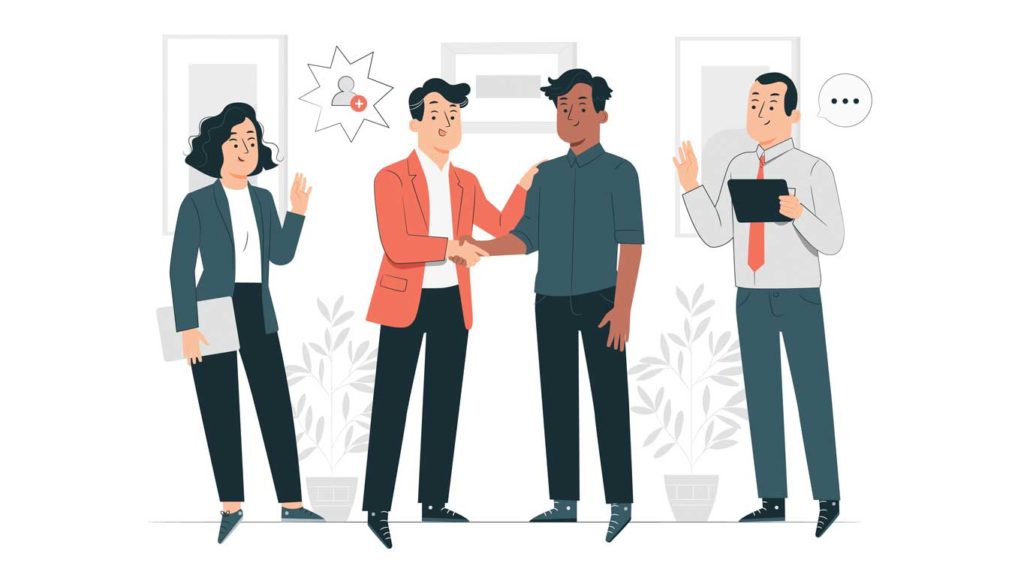Aisha was uncomfortable when one of her junior staff shouted at her in public. Dina was upset when she felt micromanaged by her supervisor and was not allowed to fully express herself. Jose thought his performance appraisal was unfair and that the breadth of his work was not taken into consideration. Awa found herself confronting what felt like an unmanageable team. George launched a formal case to seek justice following participation in what he thought was a biased staffing process.
Each of these people and situations is unique. What each of them has in common, is that they reached out to the Office of the United Nations Ombudsman and Mediation Services (UNOMS) to resolve their concerns informally, and each had a positive result. In each case, the conflict resolution officer was able to support a discussion amongst colleagues to lead to an outcome significantly better than the status quo. Not every case that goes to mediation has a happy ending, but most of them do. People who participate in mediation learn a lot through the process and gain skills they can apply in future situations. At the very least, they know more at the end than they did at the beginning and are in a better position to make decisions.
I have been a mediator for over twenty years, but my own introduction to mediation was as a party in a lawsuit. It is an experience that changed my life. I had not specifically sought out mediation, but the case was randomly selected as part of a pilot program in mandatory mediation. Through mediation, the case was resolved promptly and cost effectively to the satisfaction of all involved. I immediately enrolled in community mediation training where I learned the foundational skills of a mediator and how my previous assumptions, judgements and attitudes could be getting in the way of my relationships and my work. I began volunteering to mediate neighbor disputes which quickly led to additional volunteer work, more and more training, and eventual professional work, and advanced studies as a mediator.
Since those early days, I have seen the process resolve countless issues in diverse contexts. In the UN workplace, we have such important work to do. Our colleagues are diverse, smart, and accomplished; at the same time, our mandate is overwhelming, and the bureaucracy can be labyrinthine − when any of these weigh on us, our reactions may lead to frustration or make things worse. When you find yourself in times of trouble, you don’t have to “let it be”. There may be things that you would like to say, but you don’t know how. Working with an experienced, neutral third-party mediator can help you have the conversation that can lead to clarity, understanding, improved relationships and resolution of outstanding issues.

Mediation (a facilitated discussion, dialogue, or negotiation) is one of the services that UNOMS offers to bring people together. Whether you find yourself in a disagreement with a colleague, a conflict with a supervisor or supervisee, or are considering challenging an administrative decision, mediation may be an excellent choice.
If you reach out to UNOMS to request help, here is what a mediation could look like. Your conversations will be entirely confidential, and no action will be taken without your express permission. A mediator will not judge you, tell you who is right or wrong, or tell you what to do. You will have the chance to express your concerns and learn about options to address them. If mediation is not appropriate or timely, they can help you identify a more suitable approach. If you choose to participate in mediation, and the other person or people also agree, each party will have the opportunity to raise their concerns and be understood in a safe and confidential process. Any outcomes are by mutual agreement and can be much more creative than you might imagine.
Returning to our fictionally named characters from the first paragraph, Aisha and her colleague found a solution that led to an improved working relationship. Dina and her supervisor drafted a number of commitments to resolve their respective frustrations. Jose was able to express himself, learn more about his supervisor’s needs, and negotiate an evaluation that they both agreed was fair. Awa and the team worked with a mediator to facilitate discussions that led to a team charter. And George was able to learn more about the staffing process, gain support for his career goals and chose to withdraw the formal case. Your situation and issues will be different. The people you engage with will have their own perspectives. Through mediation, you will each be able to learn from one another and find positive paths forward.
Additional advantages to using mediation over other options include the opportunity to correct (or confirm) previous assumptions. The breadth of discussion allows you to understand the underlying issues and the motivations of the others involved, improve working relationships, and develop comprehensive and sustainable resolution options.
Conflict is neither good nor bad, but a normal and inescapable part of life. But how you manage it matters and there are ways to do that to limit the negative impact of conflict and accentuate the positive. Many people think things must get really bad before you take the step to mediate. On the contrary, the earlier the better. Nothing is too big or too small for that initial conversation.
If you are struggling with a workplace conflict, don’t hesitate to reach out to your organizational Ombudsman and Mediation service. Mediation can help you to resolve your conflict in a constructive way and improve your life at work. It is a confidential and voluntary process, and it is available to all UN personnel around the globe in all UN languages at no cost. Even when your issues feel overwhelming, mediation can be as simple as having a conversation—with help from a trained neutral third party professional.



